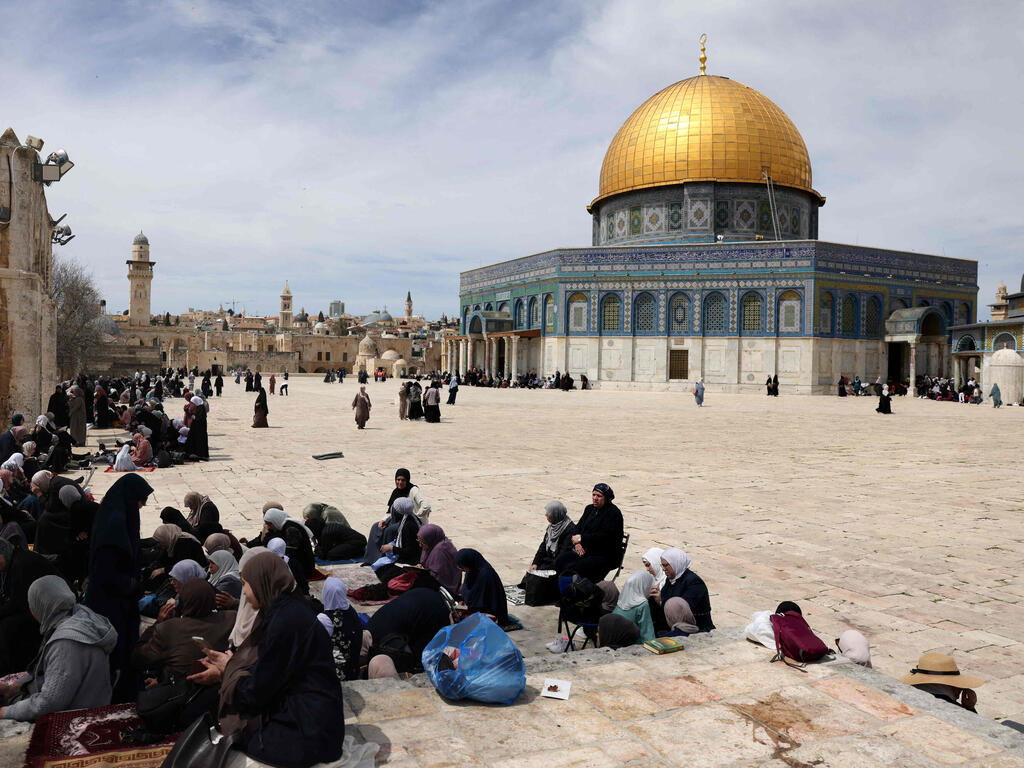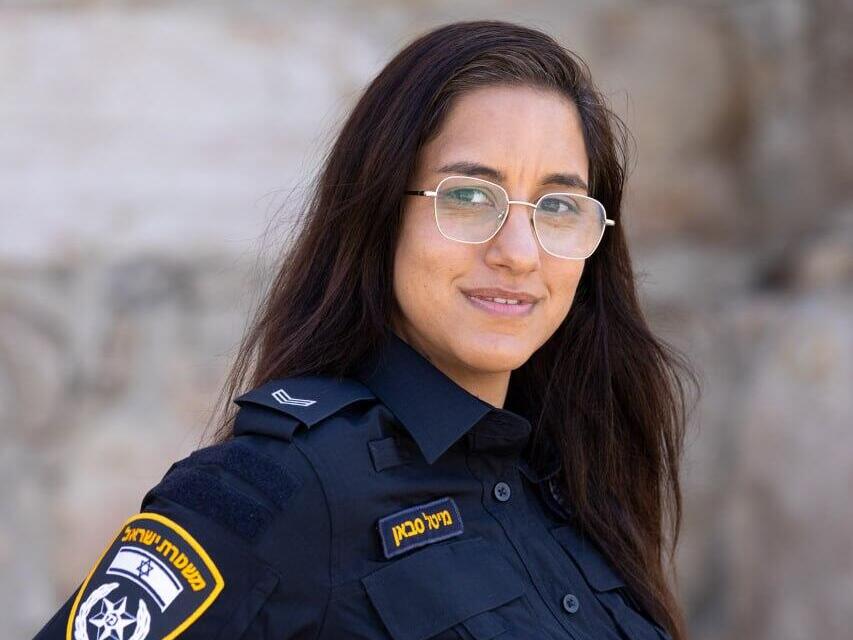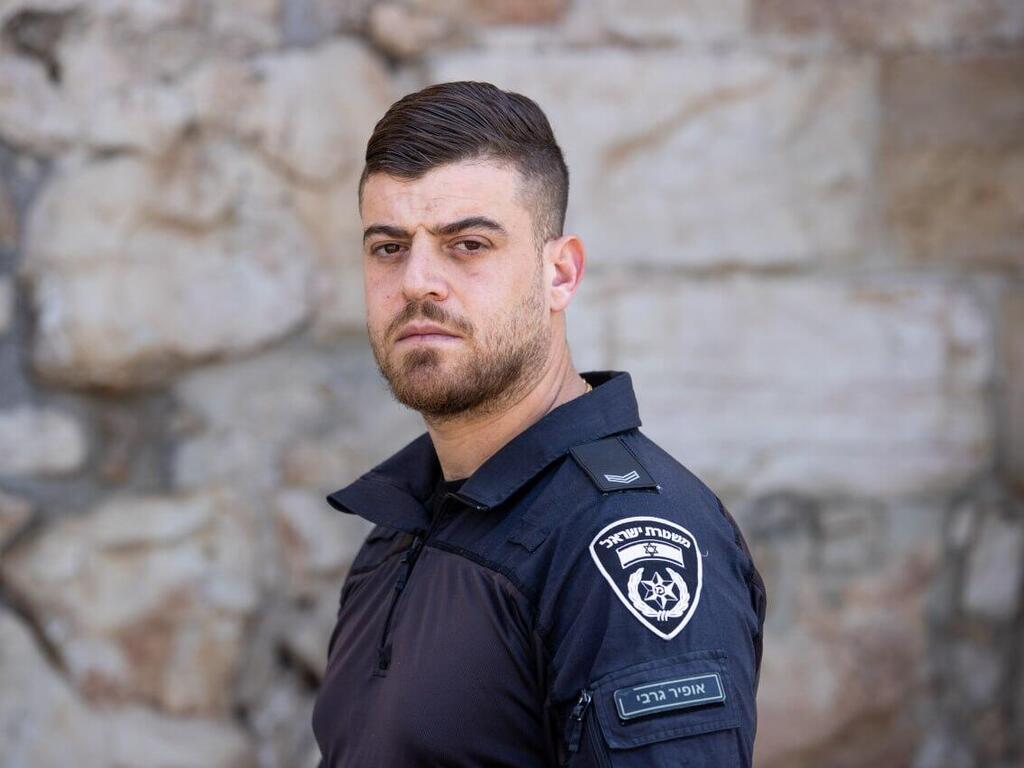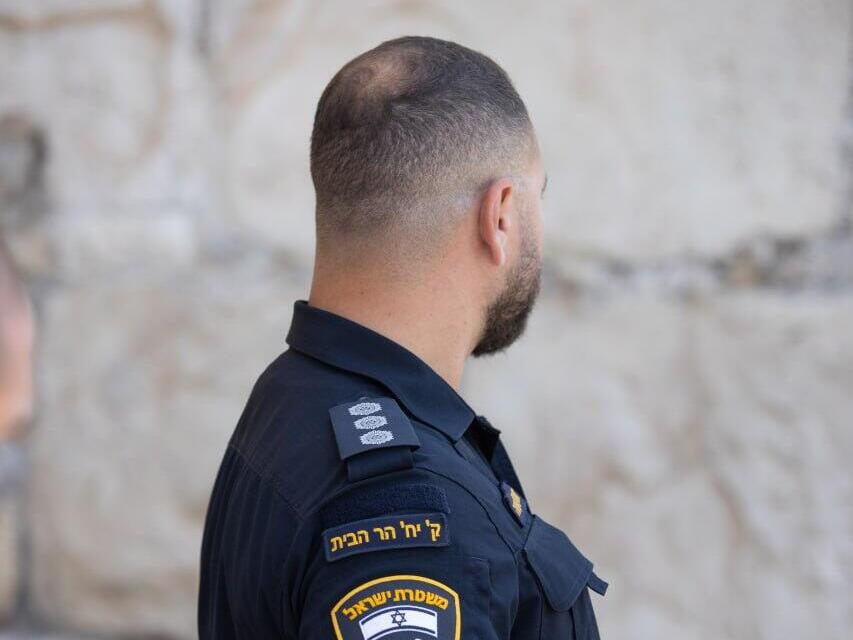While Israel remains locked in a long and bitter war, and faces ongoing terror threats, Jerusalem’s most sensitive flashpoint — the Temple Mount — has remained unusually calm.
The Muslim holy month of Ramadan passed with almost no major incidents, and overall violence and unrest in the capital have significantly declined. Authorities say that’s no coincidence. It’s the result of thousands of officers and commanders working around the clock to maintain security.
Ahead of Jerusalem Day, which marks the city's reunification following Israel's victory in the Six-Day War, three police officers reflected on the challenges of the past year and the moments that brought home how precarious normal life in the city really is.
‘What seems routine can suddenly turn critical’
Master Sgt. Meital Saban, 32, works behind the scenes at the Jerusalem District’s central operations center, but she’s at the heart of every emergency.
“In my job, you have the full picture — the call, the responding units, the cameras, and the emotions of the person on the other end,” she said. “You calm people, ask questions, make decisions. You have to be a psychologist and a commander at the same time.”
One call stands out in her memory. A woman had broken down in the fast lane of Highway 1. Saban instructed her to exit the car and stand behind a guardrail. Seconds later, another vehicle slammed into the stalled car.
“The moment she said she was out, I heard the crash,” Saban recalled. “For a second, I didn’t know if she’d been hit. But she’d gotten to safety because she followed instructions. Her life was saved by just one moment of the right guidance.”
Saban said the calls come constantly — violence, mental health crises, suspected terror attacks. “Everything can change in an instant,” she said. “That’s what makes it more than a job. It’s a calling.”
‘We don’t wait — we move in’
Master Sgt. Ofir Jerbi, 36, leads the motorcycle unit of the Jerusalem District’s elite Yassam force, a rapid-response team that often arrives first to scenes of violence or chaos.
“We’re the ones at the front of terror attacks, riots, and big events,” he said. “Whether it’s the Jerusalem Day parade or Pride — we’re in the middle of it.”
Last December, his unit responded to a fire at a girls’ school. The main entrance was blocked. Jerbi found a ladder, climbed to the roof with his team, and tried cutting through the bars on a window. When that didn’t work, he bent the metal with his bare hands to make a gap.
“We pulled out 13 girls,” he said. “I don’t know where I got the strength — maybe God gave it to me.”
Jerbi needed medical care after inhaling smoke. “I didn’t think about myself for a second,” he said. “When you hear those girls screaming, you think about your own kids. We don’t wait. When it’s time to go in, we go in. That’s who we are. Where others run out, Yassam runs in.”
‘You don’t think — you just act’
Capt. Zahi, 32, commands a unit stationed on the Temple Mount — one of the most sensitive spots in the region, where any spark can ignite a broader conflict.
“Everything up here can change in a second,” he said. “You’re dealing with public order, terror threats, major prayers and holidays. You have to be ready for anything.”
Earlier this month, he responded to a stabbing near one of the gates to the site. When he arrived, a wounded officer was on the ground. Then he noticed the attacker still moving, reaching inside his coat.
“I realized right away it was still dangerous, and the responsibility was mine,” Zahi said. “I tried to restrain him, but he resisted and kicked me. At some point, I had no choice but to neutralize him.”
“You don’t think — you just act,” he said. “That’s the moment you understand exactly why you’re there.”





